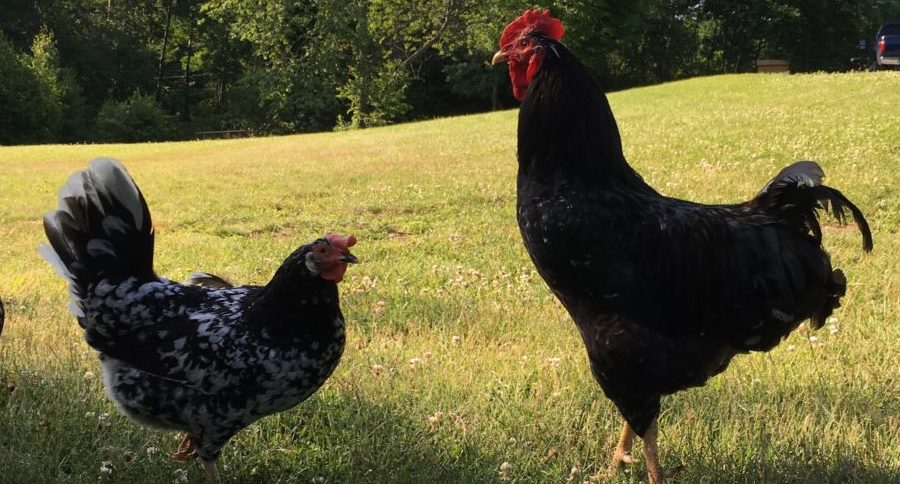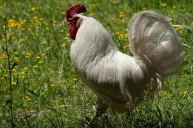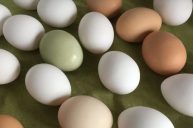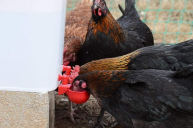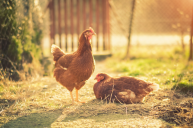More and more people are getting Salmonella from backyard chickens. Are you at risk?
This year there were more cases of Salmonella linked to backyard chickens than ever before recorded by the Centers for Disease Control and Prevention (CDC). In fact, there were over ten Salmonella outbreaks, and 1,100 cases in 48 states just this year so far!
We'll tell you what Salmonella is, help you figure out if you're at risk, and let you know the best practices for how to stay healthy. Having backyard chickens is fun, but getting Salmonella definitely isn't!
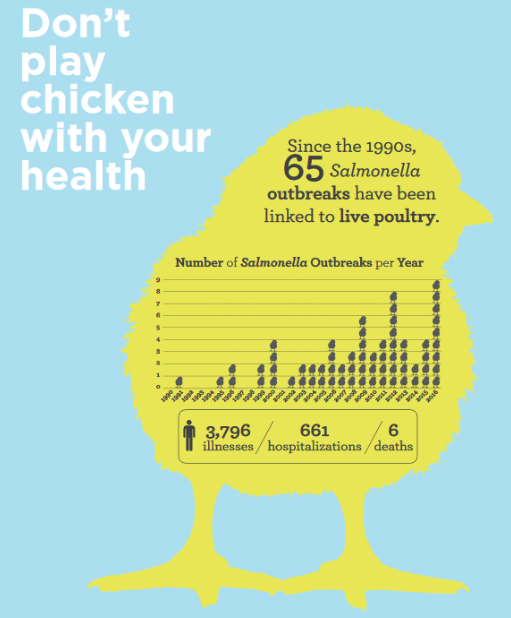
Source: CDC
What is Salmonella?
Salmonella is a bacteria that can cause nausea, fever, abdominal cramps and abdominal pain, and severe diarrhea. Symptoms develop 12-72 hours after infection.
Typically, Salmonella is a food-borne illness that makes over a million people sick annually. While most Salmonella infections are from food, it is also linked to live animals such as reptiles, birds, and livestock such as live poultry (backyard chickens) and even baby cows.
Most people with healthy immune systems get well within a week without medical treatment. However, this year 250 of the 1,100 chicken owners exposed to salmonella from backyard flocks needed inpatient hospital care to get better. A weakened immune system combined with Salmonella can be really debilitating and even lethal.
When and where are you at risk of Salmonella from backyard chickens?
Cases of salmonella from backyard poultry are skyrocketing. There were twice as many cases this year over last year. Some of the increase in Salmonella illnesses linked to backyard chickens may simply be due to the fact that more people are raising backyard chickens. Chickens can co-exist with Salmonella; they can even be positively covered with it and appear perfectly healthy.
Flock owners can get sick when Salmonella bacteria from feathers, coop bedding, water buckets, or even coop dust from a doorknob or bucket or some other surface travel from hand to mouth.
While you can get sick from backyard chickens carrying Salmonella, you can also get Salmonella from undercooked meat, undercooked eggs or raw eggs, and unpasteurized milk, or raw milk. You don't actually have to eat these to get ill. There is a potential for cross contamination: your hands and/or surfaces that touched raw meat, fresh eggs, or milk which then touch other foods during meal preparation and cross contaminate to make their way into your mouth.

Source: CDC
Salmonella Smart Prevention No. 1: Wash your hands.
The number one way to stay healthy is to wash your hands every time you come back in from the coop and any time you handle chicken food or water containers, eggs, or the chickens themselves. If soap and water wash isn't available, use a hand sanitizer.
Everyone in the household needs to wash their hands. If everyone is not practicing good hand washing after visiting the coop, collecting eggs, or watering or feeding the chickens, there is greater risk of cross contaminating things like doorknobs and other surfaces.
Salmonella Smart Prevention No. 2: No coop items in the house.
Keep your coop shoes and any water buckets or food containers (and chickens!) out of your house. By coop shoes, we mean use a separate pair of shoes when you go into the coop to collect eggs, and keep those shoes outside your house. We keep our coop boots at the bottom of the garage stairs, off to the side and away from other foot traffic.
All coop items stay outside the house. We keep water buckets outside the back door and a clean five-gallon bucket in the garage. In warmer weather, we fill the chickens' water buckets at the outdoor faucet nozzle. But in freezing weather, we use the clean five-gallon transfer pail kept in the garage for water because our "frost proof" outdoor nozzle still freezes when it gets really cold.
Also, we don't keep this pail near our coop boots. We fill the clean five-gallon bucket in a downstairs bathtub. Then, we pour the water into the coop buckets outside the house and set the clean bucket back in the garage.
The main idea is to keep your coop items in the coop and away from the house.
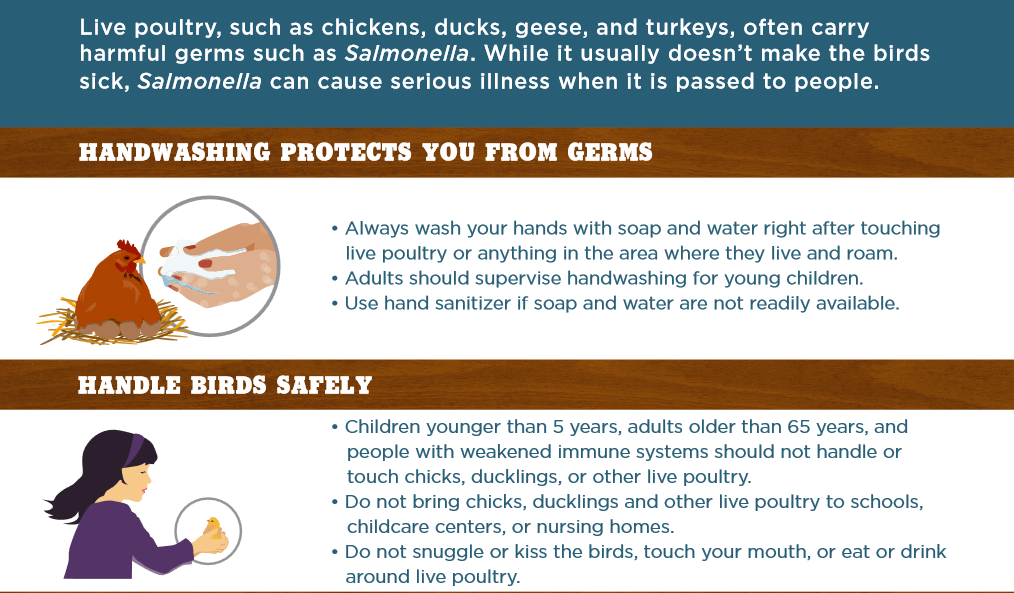
Source: CDC
Salmonella Smart Prevention No. 3: Kid safety.
Young children are even more likely to put their hands in their mouths than adults, so the risk of Salmonella may be higher with kids. Look but don't touch is a good way to teach small children about interacting with backyard chickens. If that's not realistic, supervise them closely and be sure they wash their hands.
Salmonella Smart Prevention No. 4: No smooching.
It probably goes without saying, but don't kiss your chickens. Chickens are cute, and yes, it's nice to pick them up sometimes, but hold off on smooching feathers unless you feel like the risk of Salmonella is worthwhile (and we don't). This includes baby chicks! As cute as they may be, baby chicks from a mail-order hatchery are a major carrier of Salmonella infections and cause multi-state Salmonella outbreaks annually.
Salmonella Smart Prevention No. 5: No food in or near the coop
Don't eat in or around the coop. Hands, food, and coop germs don't mix well. Really, salmonella prevention is mainly just common sense!
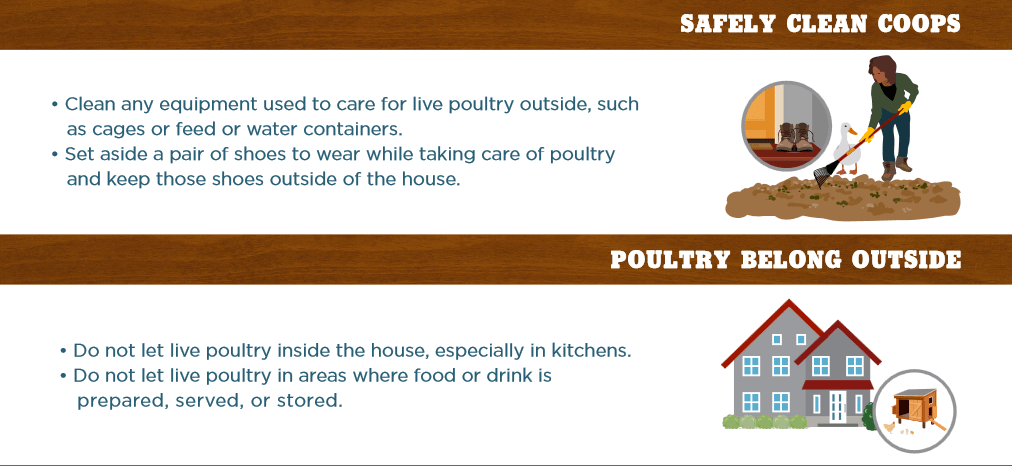
Source: CDC
Now that you know how to protect yourself from Salmonella, read up on biosecurity and how to protect your backyard birds from getting sick!
What's your main Salmonella precaution? Let us know in the comments below!
WATCH NOW: How to Have the Best Tasting Eggs from Your Backyard Chickens
